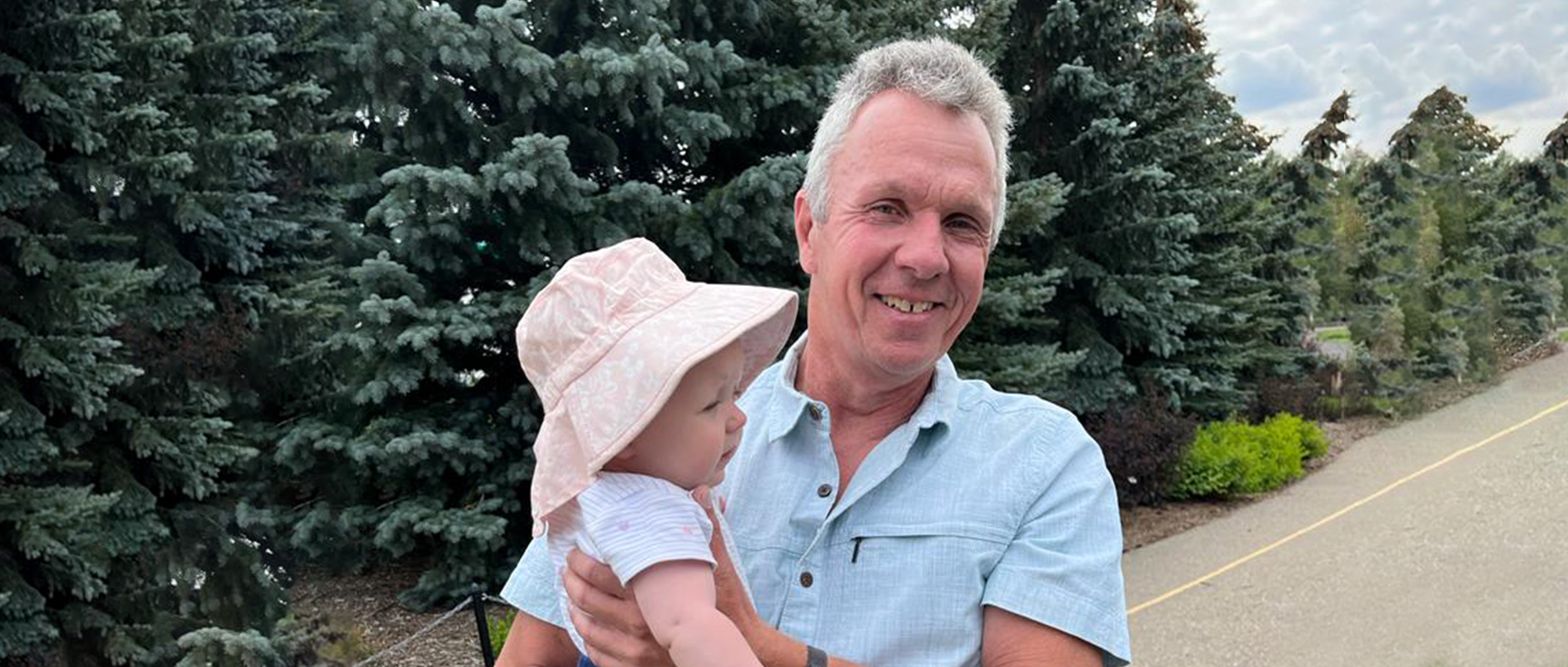As part of the Prostate Cancer Centre’s service expansion, Al Pipke took part in the “prehab” pilot program to prepare mentally and physically for surgery
Al Pipke has always prided himself on being a healthy, physically fit kind of guy. Pipke spent 29 years as a firefighter, a job that required him to stay in peak physical shape. But as Pipke unexpectedly found out, a lifetime of regular exercise doesn’t eliminate the risk of prostate cancer. That said, training one’s body and mind can make cancer treatment and recovery go more smoothly.
Now retired, Pipke, who is 60, started undergoing regular PSA testing in his mid-40s, thanks to the comprehensive healthcare program offered by the Calgary Fire Department. In 2022, after taking a break from screening during the early years of the pandemic, Pipke found that his PSA score had spiked significantly, even though he wasn’t experiencing any symptoms. A prostate cancer diagnosis was confirmed via MRI and biopsy, and Pipke was given a choice between radiation and prostate removal surgery. He decided surgery gave him the best chance to eradicate the cancer with minimal damage to his anatomy.
“I went with the surgical route because it was so much more definitive,” says Pipke, who had his prostate removed in September 2022.
Any surgery is a major undertaking with both emotional and physical repercussions. As part of its new expansion, the Prostate Cancer Centre is introducing a holistic and more personalized approach to ensure every man in Alberta diagnosed with prostate cancer receives the most thorough care possible. Pipke enrolled in a “prehab” trial, designed to test how health measures such as exercise, meditation and a healthy diet can improve outcomes when introduced between diagnosis and surgery.
For his part in the pilot trial, Pipke practiced Tai Chi in the months leading up to his operation to help strengthen his body, while also calming his mind in the face of his diagnosis and surgery. The Tai Chi kept his body strong, allowing him to focus on some small muscle groups he would need to use in his post-surgery recovery to help correct common side-effects such as incontinence. Pipke says he was terrified of losing control of his bladder with every cough or sneeze, but his prehab training helped him to learn how to develop muscle control early in his recovery process.
“Tai Chi involves a lot of balance and it works a lot of small muscles you don’t even know you have,” he says. “It fit well with the pelvic floor muscles I was going to have to work on post-surgery anyway.”
And, Tai Chi can benefit the mind as well as the body. In addition to getting him in good physical shape for his surgery and recovery, Pipke says the prehab program helped him move through the natural fear and anxiety that comes with any cancer diagnosis and surgery. Learning how to stay calm and relaxed while balancing his mind and body has been significantly beneficial to his emotional well-being. With no sign of cancer left in his body less than a year after surgery, Pipke feels like he’s close to being back to his old self and credits the work he did in prehab with that success.
“If you have that luxury of preparing before surgery, why wouldn’t you do it?” he says. “Because I did the prehab, I developed a muscle memory with both my mental health state and my physical health state. If everything went well with the surgery, I knew I would be able to bounce back quickly.” And he has.


